Archive
Ministering in a Post COVID-19 World
Published
5 years agoon

By Josh Grimes
If you would have told me three months ago that all churches throughout the world would cease meeting in public services, I would NOT have believed you. But then it happened. While churches are still able to reach out virtually, we, as leaders, desperately miss personal contact with our church families, and we have a lot of unanswered questions about what church might look like after the coronavirus runs its course.
I do not pretend to have all the answers; however, I want to share ideas from my heart about how to minister to our communities post COVID-19.
STAY CALM.
It is easy to get anxious when we think about how things have changed and might change.* Some of you are facing some serious financial issues or grief over losses or an overwhelming weight of responsibility to right the ship you as a leader have been asked to sail so to speak. Keep in mind that it is God’s ship you are sailing and that He and He alone is responsible for it. Remember the exhortation from Scripture: “Do not be anxious or worried about anything, but in everything [every circumstance and situation] by prayer and petition with thanksgiving, continue to make your [specific] requests known to God. And the peace of God [that peace which reassures the heart, that peace] which transcends all understanding, [that peace which] stands guard over your hearts and your minds in Christ Jesus [is yours]” (Philippians 4:6-7, AMP).
The exhortation ends in verse 13 (NIV), which reiterates, “I can do ALL things through him who gives me strength.” God would not have you steering the ship if He did not feel that you were qualified! Remember, this crisis did not catch God by surprise, and He chose you, as a church leader, to steer the ship through these troubled waters. Therefore, STAY CALM and trust in the Lord to lead you as you lead others.
STAY TRUE.
It is easy when things get tough for us to try to flex with the environment around us. If the Bible was true and relevant 2,000 years ago, it is still true and relevant today. We are living in a time when the Church as a whole has compromised truth in the name of relevancy. It is the tough times that reveal what we are really made of. Do not let your guard down. STAY TRUE to who you are and what you believe. The world might not like it, but it is not the world we live to please. Ultimately, I want to hear the Lord say to me, “Good and faithful servant, I am pleased.” Consequently, hold firm and stay true!
STAY THE COURSE.
God put a vision in your heart for the ministry you oversee. If this situation we face today did not take God by surprise, then God expects us to stay the course. That does not mean there will not be some things we do a little differently or that there will not be other opportunities for ministry that arise, but God still wants us to accomplish what He put before us. Before modern equipment, sailors would sail through rough seas by staying the course, navigating from the stars that stayed constant, unaffected by any weather below. Likewise, we must stay the course on which God has placed us and navigate by looking to Jesus, who is not affected by this virus. It has been said that how you start is not as important as how you finish. That is so true. Stay the course and finish your race. A time of crisis is NOT the time to make long-term life choices, but it is a time to hang on, stay the course, and trust God. As we do so, He will lead us. You can take that to the bank!
God still wants us to accomplish what He put before us. Before modern equipment, sailors would sail through rough seas by staying the course, navigating from the stars that stayed constant, unaffected by any weather below. Likewise, we must stay the course on which God has placed us and navigate by looking to Jesus, who is not affected by this virus. It has been said that how you start is not as important as how you finish. That is so true. Stay the course and finish your race.”
CAPITALIZE ON OPEN DOORS.
One of my all-time favorite Bible teachers once said, “Never waste a perfectly good problem.” I remember thinking, “How can any problem be a good problem?” He explained that a miracle can only happen when you have done all that you can do. Then, and only then, can something you cannot do occur, which is a miracle. “So,” the minister said, “when facing a problem too big for you to handle, start looking for your miracle!”
The COVID-19 crisis falls into this category. This pandemic is way too big for us to handle alone, so start looking for a miracle! If we will stop worrying and start looking, I think we will find that God is opening doors for us during and through the crises we now face.
Years ago I preached a sermon titled “When Going through Hell, Do Not Stop and Shop.” When we are going through a crisis, it is very easy to pick up anger, resentment, fear, anxiety, and other such things that we cannot afford. Have you ever gone through a grocery store, pulling things off the shelf, only to discover by the time you made it to the cashier that you did not have enough money with you to buy all of those things you stuffed into your cart? How embarrassing, right? Accordingly, when you feel like you are going through hell, do not stop and shop. Stay the course and look for the open doors that God provides because we serve a miracle-working God.
CAPITALIZE ON OPEN HEARTS.
During times of crisis people tend to do a lot of soul searching. Their hearts are more open for people to minister truth to them. Do not let this crisis go by and miss out on this chance to minister to people we might not ever have an opportunity to minister to again. This might even mean people in your own church! How? During times like these God opens the hearts of His people, lovingly influencing them to become Jesus’ hands and feet to a world in need. Remember the old promise that God gave to Joshua: “Every place that the sole of your foot will tread upon I have given you” (Joshua 1:3). Do you think that promise could be applied to the hearts you touch and not just the places you walk? I believe so, and I consistently ask God for those hearts. So do not waste a perfectly good crisis and miss capitalizing on the open hearts it helps produce!
CAPITALIZE ON RESOURCES.
Ask yourself: what would I do if money were not an issue? Do you remember the Scripture that assures us that our God owns the cattle on a thousand hills (Psalm 50:10)? It simply means that God can afford it, period. I have found through experience that God gives us a vision before we see provision. Why? Probably because if we had provision before the vision, we might squander God’s provisions on things that He has not lined up for us. So never underestimate God’s ability to provide for that which He places in our hearts. The same teacher who told us not to waste a perfectly good problem also said, “Do not wait for your miracle, but be willing to go looking for it.” Sometimes miracles do not just fall into our laps, but if, in faith, we go looking for them, we will find them. Instead of simply waiting, which can cause discouragement, we can be searching for that miracle as we would search in a treasure hunt. Who does not like a good old treasure hunt? Therefore, when God places something on your heart (a vision), start the treasure hunt for how God can and will provide. Sometimes we find miracles when we are willing to open doors to look for them. If God guides, He will provide.
ALWAYS, ALWAYS, ALWAYS HAVE FUN!
Can I be open and honest with you? If you are not having fun doing ministry, then you are not doing it right! That does not mean that we will not have difficult moments or situations. That does not mean that we will not face opposition. Likewise, it does not mean we will like every part of ministry. However, overall, the ministry should be fun. We serve a God who is concerned with us, and He made a significant investment into our joy. People ask me questions, like “Do you like what you do?” I answer that question in two ways. First, if it were not fun, I would make it fun. Second, when you are in the middle of God’s calling on your life, it is fun because you have His joy.
Years ago, while I was pastoring in Indiana, a local school principal asked me if I would consider helping the school out by being a substitute teacher. I thought this would be a great way to build relationships with the kids and to show them the love of Christ. Although most teachers I came to know loved being teachers, I will never forget a small group of teachers I overheard one day in the teachers’ lounge while eating lunch. They were complaining about the kids, the work, and everything else you can imagine. I remember feeling my own enthusiasm starting to wane. I thought, “If it is that bad, why are you even a teacher?!” My curiosity and unbridled boldness led me to ask that very question.
Not one person said it was for the money, the hours, or the benefits. Nearly all of them said things like “for the love of teaching,” or “because I love kids,” or “because I wanted to make a difference in kids’ lives.”
I thought to myself, “What changed?” Thankfully, I was able to bridle my tongue and ponder their answers, but I remember thinking, “Lord, never allow me to lose the love for what I am called to do!”
Somehow these teachers had lost their first love, and that loss caused them to focus on secondary situations and circumstances. Have you lost your first love? Do you remember when the ministry was fun and exciting? If so, what changed? Or what needs to change for ministry to be fun for you again? I have been in ministry for more than 30 years, and I am having just as much fun today as I did when I preached my first sermon! Again, that does not mean I have not endured hardships or disappointments, but I can seriously say that the ups are far more pronounced and considerably outnumber the downs. Do not let the excitement fade. Return to your first love and make the ministry fun again. After this current crisis passes, and even while going through it, remember that “the joy of the Lord is your strength” (Nehemiah 8:10). Will ministry look different in a post COVID-19 world? Yes, it probably will. But if we would focus on these seven things, we can and will make the best of it. I can honestly say that the best is yet to come because the greatest and most significant revival the world has ever experienced will happen in the last of the last days, and I, for one, want to be a part of it!
*If you suffer from depression or clinical depression, seek medical attention or other help. You should never feel shame or condemnation for seeking the help you need. God is concerned with your wellness.
About the Author

Pastor Joshua Grimes has been in ministry for more than 30 years with over 25 of those years as a church planter and pastor. He now serves as the Regional Executive Director of Open Bible East. Pastor Josh has been married to Melissa, the love of his life, for 30 years and is the father of two adult children, Hannah Joy and Caleb. When not ministering, he can be found enjoying God’s creation by going on adventures with his wife and kids, enjoying nature, hunting, or riding his motorcycle.
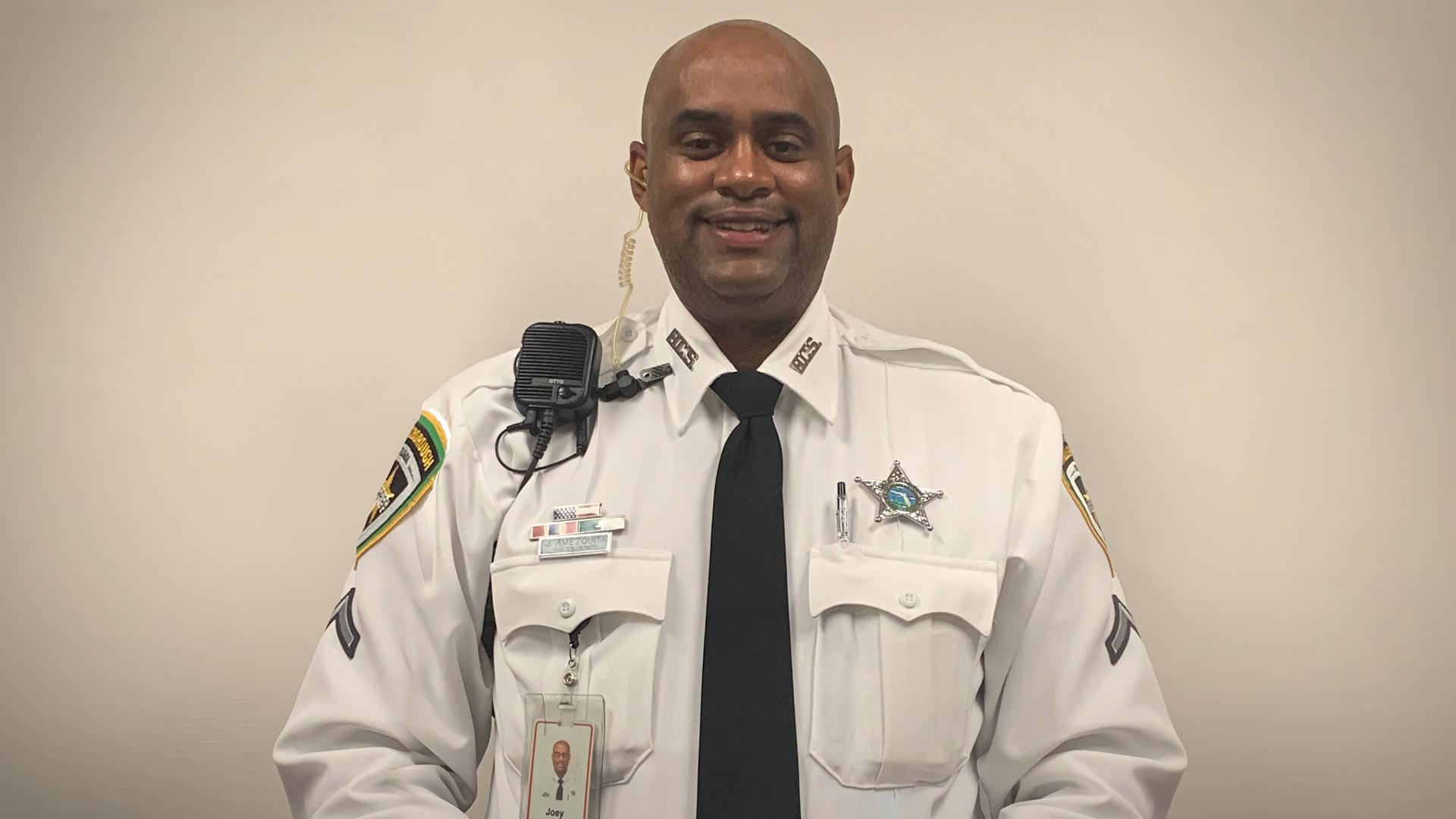
Por Joey Amezquita
Nací en Villa Palmeras (Shanghai), Santurce un barrio de Puerto Rico, soy el segundo de cuatro hijos. Como muchos proyectos de vivienda, está plagado de problemas sociales asociados con la pobreza crónica y multigeneracional.
Liberarse de la Pobreza
Mi padre, queriendo una vida mejor para su familia, se alistó en el ejército de los EE. UU. (Desde 1899 los puertorriqueños, como ciudadanos americanos, han participado en todos los compromisos militares importantes de los Estados Unidos). Esto nos permitió un estilo de vida mucho más seguro y de clase media que el que hubiéramos tenido si nos hubiéramos quedado en Villa Palmeras, pero nos mudamos mucho. Las primeras órdenes de mi padre fueron ir a Maryland. Desde allí nos trasladaríamos a Fort Lewis, en el estado de Washington; luego a Long Island, Nueva York; después a Fort Dix, Nueva Jersey; y después a la base de Strassburg Kaserne en Idar-Oberstein, una ciudad del suroeste de Alemania.
Yo amaba Alemania. En diciembre de 1984 nos mudamos allí, y aunque solo tenía nueve años recuerdo lo increíblemente hermoso que era. En lugar de vivir en el cuartel, vivíamos en una hermosa casa de cuatro pisos. Jugábamos afuera en la nieve y corríamos por los pasadizos secretos de la casa que los antiguos ocupantes habían utilizado para esconder a los judíos
Después de doce años de servicio a su país, mi padre decidió dejar el ejército en 1987 y trasladar a nuestra familia a Florida. Dejar Alemania fue difícil. Tenía once años y tuve que dejar atrás un fuerte grupo de amigos.
Jugábamos afuera en la nieve y corríamos por los pasadizos secretos de la casa que los antiguos ocupantes habían utilizado para esconder a los judíos.
¡Empecé a trabajar en las fuerzas del orden a la avanzada edad de 19 años! Aunque de pequeño era algo así como el «payaso de la clase» y el cabecilla de las travesuras entre mis hermanos y amigos, mi sueño siempre había sido convertirme en agente de policía para ayudar a la comunidad. Por aquel entonces, mi padre trabajaba en el departamento de libertad condicional y él y Christina, mi novia de secundaria, me animaron a alcanzar mi sueño.
El 15 de agosto de 1995 trabajé como oficial correccional en la Institución Correccional de Polk, una prisión estatal para hombres ubicada en Polk City, Florida. Los presos asignados a esta institución eran hombres y habían sido sentenciados por un período que iba desde un año y un día hasta toda la vida. A los reclusos del campo de trabajo donde yo trabajaba les quedaban menos de cinco años de sentencia antes de que se les permitiera irse a casa.
Como residía en Brandon, Florida, a una hora de distancia de la Institución Correccional Polk, decidí transferirme a la Cárcel Orient Road con la Oficina del Sheriff del Condado de Hillsborough en Tampa, y el 3 de noviembre de 1997, comencé mi nueva asignación trabajando en el turno de noche en la Cárcel Orient Road. En enero de 2000, me trasladé a la cárcel de Morgan Street y continué trabajando en el turno de noche. Morgan Street albergaba presos federales y a unos 50 reclusos de la cárcel del condado.
Liberarse del Pecado
En junio de 2001 mi vida cambió para siempre. Aunque mi padre era un padre amoroso, no tenía una relación con Jesús y no me había modelado un estilo de vida piadoso. Me habían criado sabiendo que había un Dios, pero me faltaba una relación con él. Tenía miedo de morir y de lo desconocido.
Christina me invitó a unos servicios especiales en una iglesia llamada Tabernáculo de la Fe de Tampa (Tabernacle of the Faith). Dos semanas antes, su compañera de trabajo, Kathy, había invitado a Christina a la iglesia y, sin que yo lo supiera, Christina le había entregado su vida a Jesucristo. Ahora ella tenía vida eterna.
Acepté asistir al servicio y me encontré entrando al Tabernáculo de la Fe. Cuando me senté en el banco y escuché al pastor Tejara predicar, sentí como si me estuviera mirando directamente. Cuando el pastor Tejara dijo que yo era un pecador y estaba destinado al infierno, que si moría ese día, me separaría de Dios para siempre y pasaría el resto de la eternidad atormentado en el infierno, me asusté mucho. No quería ir al infierno para siempre.
En ese momento, el pastor Tejara pidió a cualquier persona del público que quisiera entregar su corazón y su vida a Jesús que levantara la mano. Yo estaba nervioso, pero también sentí que una paz que nunca antes había experimentado me invadía. Levanté mi mano, me arrepentí de mis pecados y acepté a Jesucristo en mi corazón como Señor y Salvador. Christina y yo fuimos las primeras personas de nuestra familia en entregar nuestros corazones al Señor. Compré mi primera Biblia y empecé a leer la Palabra de Dios y a asistir a estudios bíblicos con Christina.
Cuando recibía una asignación, oraba en el camino, pidiéndole al Señor que enviara a Sus ángeles y que me ayudara a ser lento para hablar y lento para la ira y para darme una paz sobrenatural.
Christina y yo habíamos estado juntas desde abril de 1994, y el Espíritu Santo comenzó a tratar con nosotros acerca de casarnos. Mi buen amigo y colaborador Ed, que era cristiano, nos animó a ir al juzgado y casarnos por obediencia a la Palabra de Dios. Tomamos la decisión de no esperar más, y el 22 de febrero de 2002, Christina y yo fuimos al centro de la ciudad al juzgado de Tampa y nos casamos. Esta fue la segunda decisión más importante de mi vida.
Dios honró y bendijo nuestra obediencia al casarnos. Cuando comencé a leer la Biblia, la Palabra de Dios cobró vida y sentí tanta emoción, gozo, paz y satisfacción. En realidad, nunca antes me había gustado leer, pero ahora estaba impaciente por leer la Palabra de Dios. La amo mucho. La Biblia es la guía para la vida. Todo está en la Palabra de Dios: consejos sobre las finanzas, el matrimonio, los hijos, la depresión, el pecado, los profetas y la vida piadosa.
Cuanto más leía la Palabra de Dios, más aumentaba mi fe. Ya no tenía miedo a lo desconocido ni a la muerte. Tenía una paz y una alegría asombrosamente sobrenatural. Oraba antes de ir a trabajar. A menudo entraba en una celda con 30 reclusos que habían sido condenados por asesinato y otros crímenes violentos, y una paz me invadía. .
Una vez, uno de los reclusos, tratando de intimidarme, me preguntó: «Si la puerta se cerrara detrás de ti “accidentalmente” y estuvieras atrapado aquí con nosotros, ¿estarías asustado?” Respondí con valentía: «No, no estaría asustado porque tengo un ángel asignado y Dios me protegerá y no dejará que ningún daño me sobrevenga». Cité Isaías 54:17: «Ninguna arma forjada contra ti prosperará»(RVR-60). Le dije al recluso que no tenía que pelear con él físicamente porque Dios peleará todas mis batallas. Le hice saber que temía a Dios y no a los hombres, terminé el registro de la celda y salí de ella.
Liberarse de la Esterilidad
Comencé aplicar lo que estaba aprendiendo de la Biblia en mi vida diaria con mi matrimonio y con mi trabajo. Fue asombroso. Años atrás, los médicos le habían dicho a Christina que no podía tener hijos. Sin embargo, en 2003 mi esposa me dio una gran noticia: ¡estaba embarazada! ¡Estábamos muy contentos! Creo que el Señor nos bendijo con este milagro al permitirle tener hijos porque estábamos alineados con Dios.
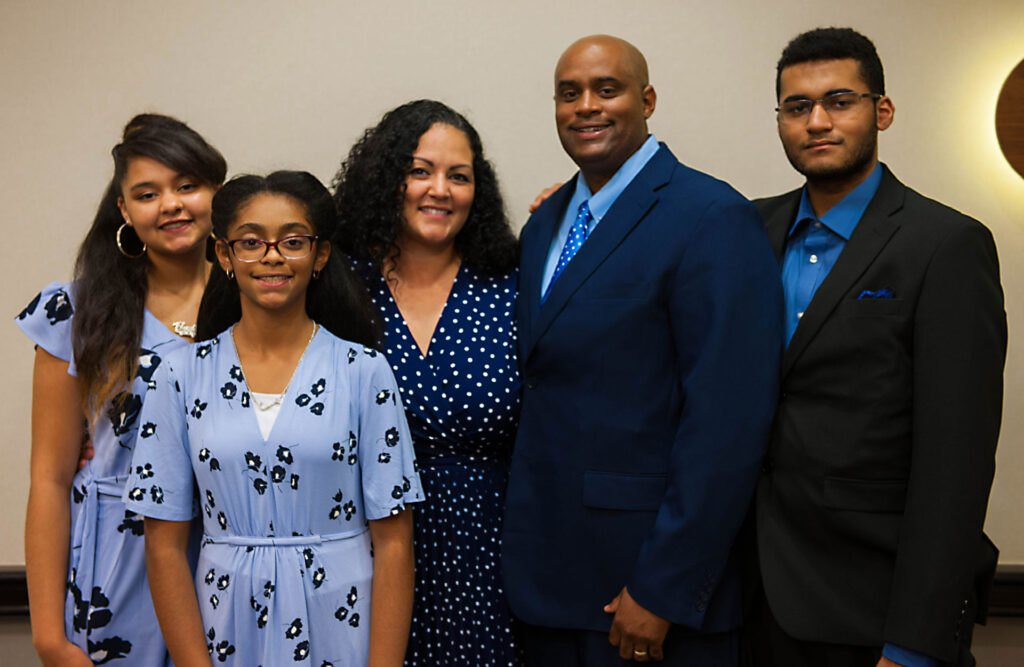
Por aquel entonces, estaba leyendo 2 Reyes 22:1 y aprendí acerca de este rey joven llamado Josías de tan solo ocho años. El rey Josías, cuyo nombre significa «el Señor te apoyará», fue uno de los pocos reyes del Antiguo Testamento que hizo lo que Dios le pidió que hiciera sin dudarlo. Amo su historia, así que quería nombrar a mi hijo Josías. Sin embargo, mi esposa quería que ese fuera su segundo nombre, no el primero. Bueno, mi mamá no crió a ningún tonto, así que llamamos a nuestro hijo Justin Josías. (¡Esposa feliz, vida feliz!). En diciembre de 2005, el Señor nos bendijo con una hermosa niña a la que llamamos Jayla. Y en febrero de 2009, el Señor nos bendijo con otra hermosa niña a la que llamamos Julia.
Mi esposa solía preocuparse por mí, pero le decía: «No te preocupes; sólo ora», y lo hizo. Ella oró por la protección de Dios sobre mí. Yo también oré. Cuando recibía una asignación, oraba en el camino, pidiéndole al Señor que enviara a Sus ángeles y que me ayudara a ser lento para hablar y lento para la ira y para darme una paz sobrenatural. Enfrentaba una situación con la autoridad de Dios y los presos podían sentir que era cristiano. Un recluso de Cuba me dijo que sabía que algún día yo iba a ser pastor. En 2003 la cárcel de Morgan Street cerró, así que comencé a trabajar en la Unidad de Vivienda de la Cárcel de Falkenburg Road 11. Soy una «persona sociable», y cuanto más leía la Biblia, más me di cuenta de lo fácil que era proclamar el Evangelio (las Buenas Nuevas) a los reclusos en las celdas, aunque tuviera que ser creativo en mi metodología.
Liberarse Hacia la Fecundidad
Las normativas no permitían que nos tomáramos de las manos y orar por los presos, pero se les permitió tener una Biblia. Hacía que algunos de ellos se acercaran a mi escritorio y abrieran sus Biblias en Juan 3:3-18, el pasaje sobre nacer de nuevo y recibir la vida eterna. Luego les pedía que fueran a Efesios 2:8-9, donde dice: «Porque por gracia sois salvos por medio de la fe; y esto no de vosotros, pues es don de Dios; no por obras, para que nadie se gloríe» y también Romanos 10:9: «que si confesares con tu boca que Jesús es el Señor, y creyeres en tu corazón que Dios le levantó de los muertos, serás salvo». Quería que experimentaran la Palabra de Dios escrita. En una oportunidad habían cinco presos alrededor de mi escritorio con sus Biblias abiertas. Luego procedí a hacer un llamado al altar allí mismo en la celda, y los cinco presos entregaron sus vidas a Cristo. ¡Alabado sea el Señor! Los animé a seguir leyendo la Palabra de Dios y a inscribirse en los servicios religiosos no denominacionales.
Mi familia también llegó a la fe en Cristo. En 2002, Christina y yo tuvimos la bendición de guiar a su hermana menor Zenia al Señor, quien la transformó de una joven tímida a una mujer joven que usa sin vergüenza sus increíbles talentos para dirigir la adoración. En 2005 tuve el privilegio de presenciar a mi padre entregar su vida a Cristo en una cruzada de Promise Keepers (Cumplidores de Promesas). Mi madre dudaba un poco más, no estaba segura de que la conversión de mi padre fuera sincera. Pero en 2007, mientras luchaba contra un el cáncer de mama fase cuatro, también aceptó a Cristo como su Salvador. De hecho, experimentó sueños y visiones de Dios. Tuvo un sueño sobre el huracán María antes de que devastara el noreste del Caribe en 2017. Le pidió al Señor que evitara que sucediera, pero Él le dijo que tenía que suceder porque su pueblo se había alejado de Él. Mi madre también guió a otros miembros de la familia al Señor.
Podemos proclamar el evangelio a muchos acusados y hemos llevado a varios de ellos a arrepentirse de sus pecados y aceptar a Cristo en sus corazones.
Hoy soy uno de los dos alguaciles que trabajan en el juzgado en la división de delitos menores. Mi compañera, la diputada Wright, también es una gran cristiana, una mujer de fe. Todas las mañanas, antes de comenzar el tribunal matutino, clamamos a la sangre de Dios por protección sobre el tribunal y el personal. Nos aseguramos de establecer una atmósfera piadosa en la sala del tribunal. Podemos proclamar el evangelio a muchos acusados y hemos llevado a varios de ellos a arrepentirse de sus pecados y aceptar a Cristo en sus corazones. Estoy agradecido a Dios porque usó mis 26 años de trabajo en las fuerzas del orden/correccionales para compartir el Evangelio.
En septiembre de 2019, la hermana de Christina, Zenia, y su esposo, Carlos, comenzaron a asistir a un estudio bíblico dirigido por Calbert y Beverly Mark, pastores de Open Bible Prayer Chapel en Wesley Chapel. El estudio fortaleció tan poderosamente la fe de Zenia y la de su esposo que nos dijeron a mi esposa y a mí que teníamos que ir a verlo. Los Marks llevaron nuestra fe a otro nivel. Pronto toda nuestra familia, incluida mi suegra, Carmen, y la otra hermana de Christina, Yaritza, asistieron al estudio. ¡La amiga de Christina, Kathy, también comenzó a asistir! Ahora Christina y yo estamos planeando hacer otro cambio en nuestras vidas, mientras trabajo para convertirme en un ministro licenciado con la Biblia Abierta. Calbert y Beverly Mark son nativos de Trinidad. Enviados como misioneros desde Trinidad hace más de 27 años, los Mark establecieron doce obras pioneras en Venezuela y fueron instrumentales para plantar iglesias en Trinidad y Colombia. Calbert todavía sirve como director de campo de las Iglesias de la Biblia Abierta en Venezuela. Me sorprendió que Dios enviara a Wesley Chapel, Florida, a una pareja trinitense que servía como misionera en Venezuela para bendecir a nuestra familia, ¡pero Él lo hizo!
Sobre el Autor
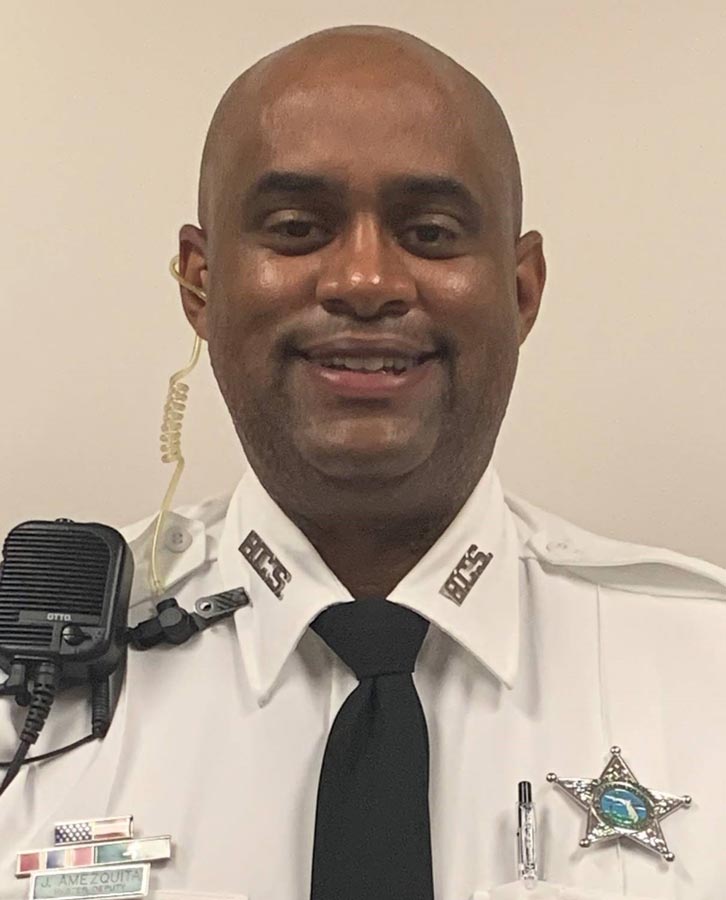
Joey Amezquita, después de haber trabajado en la aplicación de la ley durante 26 años, es alguacil de la Oficina del Sheriff del Condado de Hillsborough en Tampa, Florida. Él es un miembro comprometido y maestro de escuela dominical en la Open Bible Prayer Chapel en Wesley Chapel, Florida, que pastorea Calbert Mark. Joey y su esposa, Christina, tienen tres hijos.
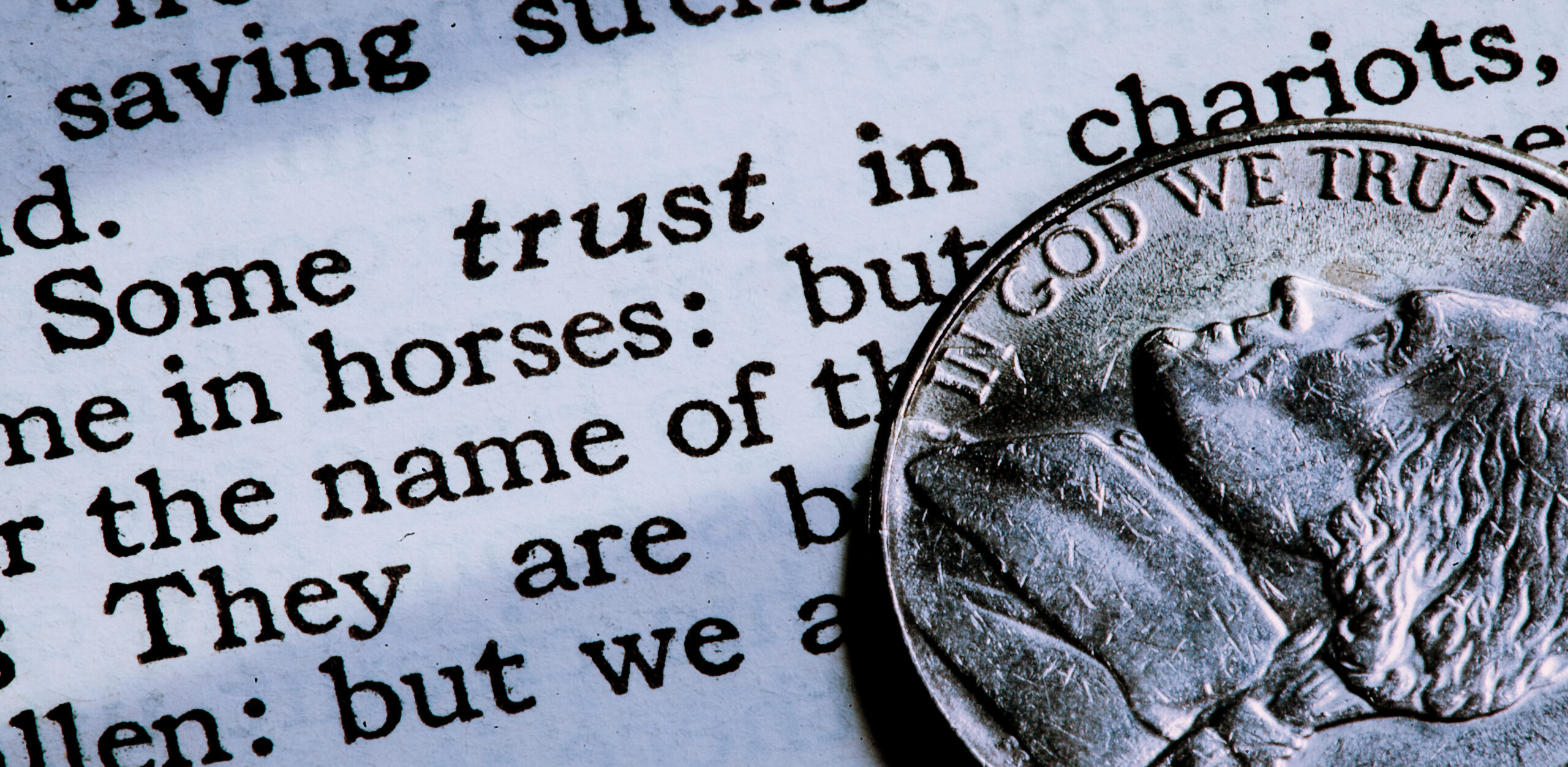
By Bill Francavilla
We all have days when we question what has gone wrong in society. The cause can be an event we see on the news or on social media. But very few of us see it firsthand.
I will never forget the morning of April 17, 2016. Early Sunday morning before the rest of my family woke up, I headed to the grocery store to buy a few things for breakfast. I was completely unaware that another person was headed to the same grocery store with a very different purpose.
I would like to say that I played the part of a hero, but when I heard shots fired and one of the cashiers screaming for everyone to get out, my response was to run as fast as I possibly could. I made it safely out the front door along with two employees and collapsed in the front of the church next door where I called 911.
The local police and paramedics did a top-notch job and soon apprehended the shooter. It was determined he had acted alone. Unfortunately, a man my age who had gone to the same grocery store with a similar purpose as mine was now dead. He left behind a wife, a young daughter, and an unborn baby.
In the news reports later that day many people who did not witness the incident were quoted as saying, “This sort of thing never happens here!”
Nonetheless our town had to face the fact that we had just had a fatal shooting.
In the five years since, I have asked myself how such a violent occurrence could have happened in such an innocent setting. More important, I wanted to know how to keep something like this from ever happening again.
It is no secret that we have seen a decline in the morality of our culture since the mid-twentieth century, and as a result we have seen an increase in crime, poverty, sexual perversions, and apathy.
Perhaps more alarming and not by coincidence, we are living in an age where our culture is more and more strongly opposed to the things of our God.
We have seen the Ten Commandments removed from court buildings, pushes to remove “under God” from the Pledge of Allegiance, and a devaluing of an elected official swearing his or her oath of office on the Bible.
When prayer was taken out of public school in 1962, suddenly millions of young Americans were no longer praying with childlike faith for their country. As Christians it is easy to ask ourselves, “What did we expect?”
Of course, sin was going to creep in and hit small-town America; it was just a matter of when. We are far from the first culture with Christian roots to face the secularization of society, and we will certainly not be the last. The question that faces us is this: What are we, the people of God, to do about it?
Every four years many Christians vote as if their lives count on it. Without ever engaging with their neighbor, they pull the lever on the voting booth and walk out as if they have accomplished something noble.
While it is of the utmost importance to vote, that act can only go so far. Sure, from time to time we happen to get an elected official that we think is going to “set things right.” But do we really expect reform to come by an act of legislation?
There is still a culture out there to whom we are commissioned to minister.
When King Josiah came to the throne, he was put in perhaps one of the most awkward positions in the history of Israel. At the age of eight, Josiah was tasked with reigning over a people who were openly rebellious to their God.
His father, King Amon, reigned for only two years and had proven to be weak and ineffective. His grandfather was the infamous King Manasseh, a king so evil he sacrificed his own sons to false gods. After 45 years, though, Manasseh had been humbled by God and lived out the remaining ten years of his reign serving God.
While Manasseh tried to reform his kingdom in the latter part of his reign, the culture had already taken a dangerous turn towards idolatry and false worship. There was little he could do to change the hearts of the people.
Now the boy-king Josiah was tasked by none other than his distant cousin, the prophet Zephaniah, with reforming his new kingdom. Nonetheless, Zephaniah did not tell Josiah that change would come from his government; it would come through an act of repentance and prayer.
Seek the Lord, all you humble of the land, you who do what he commands. Seek righteousness, seek humility; perhaps you will be sheltered on the day of the Lord’s anger.
Zephaniah 2:3
In 2 Chronicles 34 we are told that by the time Josiah was 16, he began seeking after the Lord, and by the time he was 20, he purged Jerusalem and Judah of all its idols and false gods. But nothing could prepare him for what he would see at the age of 26. As his reforms continued, Josiah made the decision to repair the temple of the Lord where the “Book of the Law of the Lord” was discovered, and for the first time in a long time, the people heard the law and repented.
I believe that the words of Zephaniah can apply to us today. Since we are Americans and do not have a king, the people must seek the Lord, seek righteousness, and seek humility. Unless the people of this nation seek the Lord and pray for a true revival, electing a righteous man or woman to the presidency can only be so helpful.
Believe it or not, this is not the United States’ first moral slump. Just after the revolution, our new country had unbelievably high rates of drunkenness, crime, and profanity. Churches were losing more members than they were gaining.
The late Baptist minister and historian J. Edward Orr wrote about this in his article “Prayer and Revival.” He quotes Chief Justice of the United States, John Marshall, who wrote to the Bishop of Virginia, James Madison, that the Church “was too far gone ever to be redeemed.”1
How did the situation change? It was through a concerted effort of prayer. It happened when the people of God decided to ask our Lord for His wonderful favor upon our nation. Every revival in history has the same story.
It was true in Josiah’s day just as it is true in ours.
When small-town America no longer feels safe, people tend to ask themselves how we got to this place and what must we do to turn the tide? The answer is always going to be prayer.
If you consider your church a house of prayer, then you should be praying for the coming revival we so desperately need, a movement that will be felt for generations.
Josiah’s revival did not last long, but thankfully we still have the words of Zephaniah to guide us back to our spiritual heritage as the people of God.
1 Orr. J. Edwin. “Prayer and Revival.” https://jedwinorr.com/resources/articles/prayandrevival.pdf
About the Author
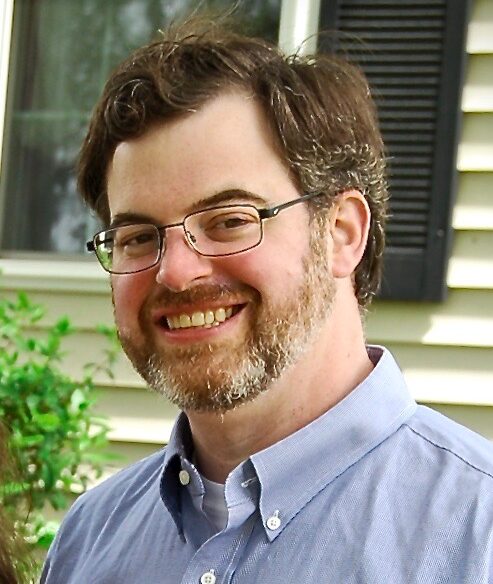
Bill Francavilla and his wife, Jessica, pastor Living Hope Church in Williamsburg, Virginia. Bill has served in many different ministries from teaching middle school Bible classes to serving as a chaplain at a retirement community. He holds a master’s degree in theological studies from Liberty University and has been active in missions to Mexico, Dominican Republic, and Cuba. Bill and Jessica have four children: Alex, Liam, Rita Grace, and Gino.

By Marvin Lumbard
During our devotions together the other day, I told my wife, Diana, that I’ve been struggling in prayer recently. Later that same day I opened an email from Andrea, the Message editor, asking me to consider writing an article on prayer. As I read it, my initial response was “No.” Who was I? What was I? And of all times now…when my Father’s ear seemed distant. When reading Psalms recently, I had been nodding my head in agreement as David asked God why He wasn’t answering or why He wasn’t doing the “God things” when they seemed so necessary “right now.”
Yet now as I write, the sun isn’t up yet, not because early mornings are some part of my spiritual pattern but because this morning I can’t sleep. God is speaking. Before I even took the time to formally pray about Andrea’s request, He spoke. My friend and former boss, Spencer Keroff, pastor of First Church of the Open Bible in Des Moines, Iowa, says, “Prayer is a two-way conversation with God.” I guess this is me experiencing that conversation.
Knowing His Voice – Hearing
I wouldn’t say that I receive many “words” from the Lord. Oh sure, I know His anointing when I preach or teach, but aside from the written Word of God that I have hidden in my heart, I don’t recall very many phrases that He has spoken to me. Most of His leadings, which I expect daily, are more like nudges.
One phrase from the Lord that I do remember came many years ago when I was in my quiet place. He said, “Music is not your ministry; prayer is.”
Since music had been a prominent part of my life, this word was timely. It wasn’t a corrective word, but a directive word. I knew it was Him. It bore all the characteristic features of something He would say: it was in the stillness, it was gentle, it carried with it the peace that I have come to expect with any of His leadings, it fell into a thematic pattern of what I knew He had already said in Scripture, and . . . it wasn’t something I would tell myself. His directive didn’t change much on the outside; you probably wouldn’t have seen any difference at all in my life, but it was “the voice behind [me] saying, ‘This is the way; walk in it’” (Isaiah 30:21).
I cherish the story about Elijah in 1 Kings 19. Elijah was at what may have been the lowest point of his life, hiding in a cave in the wilderness afraid for his life. It was at this point that God spoke to him. I think the narrative is for us mostly (Elijah already knew the voice of God).
In essence God said to Elijah, “We need to talk. Meet me on the mountain.” As God passed by the cave where Elijah waited, rock-breaking winds tore at the mountain, then an earthquake shook the ground under Elijah’s feet, and then there was fire. (Wouldn’t we love to experience any of these as vehicles of God’s voice!) Only after the fire did Elijah hear the voice that He recognized – the quiet one, the one that required Elijah’s heart to be still enough to hear. Such a familiarity comes only with time spent in His presence.
Obeying His Voice – Doing
One of the keys in Elijah’s narrative that I missed for a long time was the part Elijah played in his meeting with God. God told Elijah where the meeting would take place, but Elijah still had to go there. Even though he was waiting in a cave on the mountain, Elijah still had to get up and go meet God when he heard God’s voice.
As much as God has done to clear the path for us to be near Him, He stops a distance away and says, “Draw near, seek, knock, ask.” Part of the maturity of knowing God is certainly the recognition of His voice, but of equal importance is saying “yes” when we hear it. Perhaps the greater struggle is not in hearing His voice but in being willing to do what we hear Him say. More often than not, the call to come is heard when there is plenty to do and we’re buried in the midst of it all.
I’m reminded of the time when I was an eleven-year-old lying under a ’66 Dodge Polara with my grandad, doing my part to swap out a 318 under a big, old tree. Suddenly Grandad stopped working, so I looked at him to see what was going on. There he was, hands raised in that narrow space between the earth and the underside of the car, giving glory to our God who had given us the strength, the provision, and the understanding to fix one of life’s necessities. Grandad had heard the voice call to him, and he responded instantly. Long before I met his God, I learned a timeless lesson.
Drawing Near is the Solution to the Dryness
I mentioned earlier a recent season where God’s voice seemed faint. I find that unless I am harboring sin, the faintness or distance is just His calling me to a deeper place.
The busier we become, the easier it is for our secret place to lose its significance. Loud and desperate voices clamor for our attention. Jesus too was called on to meet the needs of many well-meaning, loved, and godly people. I think of Lazarus’s family (John 11) and the godly Greeks with whom Jesus refused an audience in His final week (John 12:20-26). In these times of busyness the still, small voice will lead us to pray when we should pray and to pray with whom we should pray. Without this leading we find ourselves submitting to the pressures of others’ priorities. (My dad always says, “Everybody has a plan for your life.”) As we listen and obey, God leads us into deeper places of dedication, deeper places of victory, and deeper places of responsibility (Matthew 25:14-30).
Jesus was misunderstood much of the time because His teachings were from a source that was higher than that of His listeners’ understanding. His leading was also from a higher source. Not until after Lazarus’s resurrection did his family get over the offense they felt by Jesus’ tardiness. Perhaps the Greeks never did understand why he couldn’t give them a few minutes. One thing is for sure, His timing was always spot on; so was His prayer time. Walking in the peace of the Father, near to His voice, Jesus was confident that the day would be directed by the Spirit. With His mind fixed on the Father, Jesus walked in the peace of God all the time (Isaiah 26:3). We can too.
About the Author
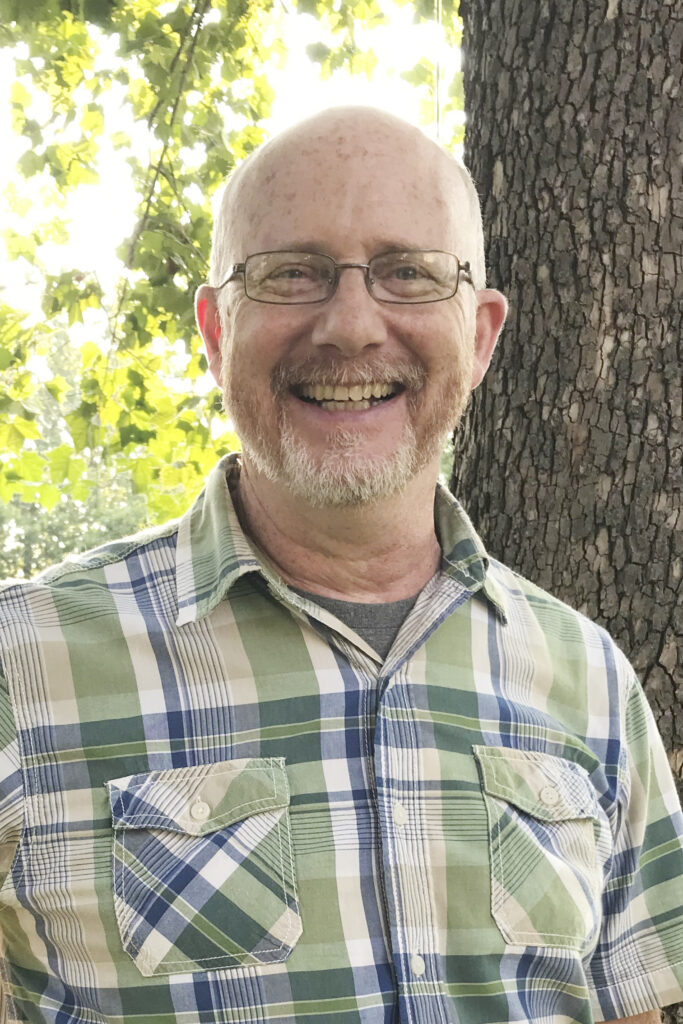
Marvin Lumbard is the husband of Diana Lumbard. “To everyone’s amazement” (according to Marvin), she has been married to him for 43 years. After spending 22 years in the aircraft industry, Marvin’s focus became ministry. He served as the worship director/worship pastor at First Church of the Open Bible in Des Moines, Iowa, for 11 years. Ordained with Open Bible Churches, Marvin has served as pastor of Community Chapel, an Open Bible church in Des Moines, since January of 2018.







